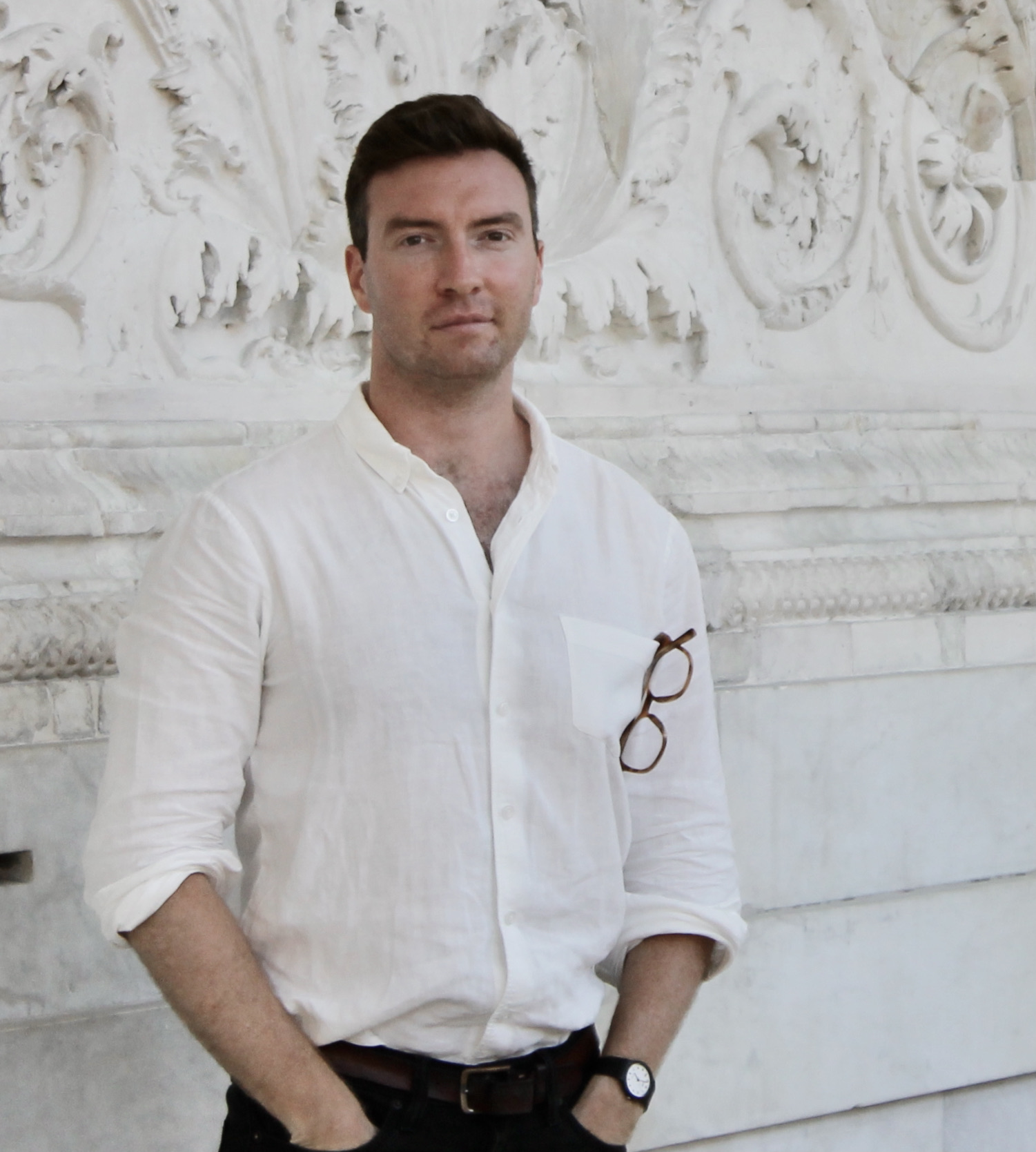Critical Focus on Racism and Misogyny Extends to Greek and Roman Classics, Says Rutgers–Camden Professor
When Dr. Seuss Enterprises announced recently that it would no longer publish six of the children’s author’s books due to racist and stereotypical images, it stirred a national debate on systemic racism, censorship, and cancel culture.

Jewell posits that it's important to maintain a critical distance between our society and the ancient Romans and Greeks.
The ongoing conversation, says Evan Jewell, is along the lines of one that scholars who teach ancient Roman and Greek literature and history have been having, with lessons of the #MeToo and Black Lives Matter movements in mind. The field of Classics itself has recently had to reckon with its own history of misogyny, sexual harassment and racism.
“People have rightfully come to a more critical stance against continuing attitudes of racism and misogyny,” says the assistant professor of history at Rutgers University–Camden. “So how do we teach an ancient society where misogyny, sexual assault, and harassment were the norm and built into the classic texts that we read?”
Rather than relegate these classics to the dustbin of history, says Jewell, it is an opportunity to explore how social norms in ancient Greece and Rome don’t align with the present day. As much as scholars like to lay claim to the legacies of Greece and Rome, he says, we need to recognize how far we have come.
For instance, he says, rape was “at the foundation” of ancient Rome in the story of the rape of the Sabine women. He also cites the Roman poet Ovid’s Latin narrative poem, “The Metamorphoses,” written in 8 A.D., for its lurid details of Apollo – the god of poetry and music – raping the nymph Daphne. The sculptor Bernini later immortalized this scene in his Statue of Apollo and Daphne.

Jewell says that professors must be mindful of presenting unethical, insensitive – and potentially traumatic – topics from the ancient world in the classroom.
“It’s important to maintain that critical distance between our society and the ancient Romans and Greeks,” says Jewell. “That’s something that I always impress upon my students.”
However, Jewell continues, in the act of finding that distance, students can also explore what is going on in the world today – and discover how far we still have to go. Nonetheless, says the Rutgers–Camden professor, the fact that the conversation is being raised at all points to progress.
“Most certainly, the Romans and Greeks were not having this conversation,” he says.
Jewell posits that professors must be mindful of presenting unethical, insensitive – and potentially traumatic – topics from the ancient world in the classroom. He will give trigger warnings to students in order to prepare them for class discussions.
“There are debates whether taking such an approach doesn’t prepare them for the real world,” he says. “Conversely, some argue that, if someone has had a traumatic assault, the discussion might trigger this experience. I think it’s better to prepare the students than to surprise them.”
Moreover, he says, in discussing how social practices differed in historical periods, it is important for professors to maintain an open dialogue and to confront assumptions and stereotypes directly, should they arise. For instance, he recalls an incident where a student had equated homosexuality with pederasty – a romantic relationship between an adult male and younger male – that was socially acceptable in ancient Greece.
Jewell first made it clear that he didn’t stand for discrimination and addressed the student’s comments as homophobic and insensitive – “the kind of statement that has been used against people in the LGBT community for centuries; to accuse them of pedophilia, to marginalize them, and to exclude them from the community.”
He then assigned readings explaining how sexuality actually worked in ancient Greece and Rome, and how it differed from the present day. The class also reread passages and discussed how historical judgments are influenced by one’s personal biases, experiences, and views.
“That was actually one of the most effective classroom activities that we had that semester,” he says. “People came away from that with their assumptions exploded and presented with a different understanding. It was apparent that there are actual ethical issues to be dealt with when we are reading scholarship.”
The Rutgers–Camden researcher cautions that scholars must also be aware of present-day depictions and discussions of classics that attempt to write out or write over original texts in order to meet modern-day sensibilities. For instance, in Homer’s Iliad, Cassandra – the daughter of Priam, the Trojan king – prophesizes the fall of Troy, but is not believed. However, he says, in a recent rendition shown in a Netflix series, they “didn’t even give her a voice; she’s just mute.”
“And so, not only do we have this silencing of a woman, but they write out the whole potential for there to be this nonbelief in a woman’s story,” he says. “Perhaps they felt it was too close to home for the #MeToo movement at the time.”
All of these instances, says Jewell, are the types of questions that scholars are struggling to answer.


